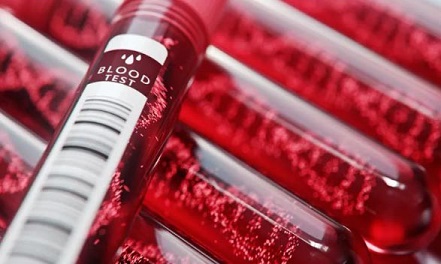Club Cell Secretory Protein-16 as a biomarker for predicting severity of COVID-19 and H1N1
Nikhil Prasad Fact checked by:Thailand Medical News Team Aug 08, 2024 7 months, 3 weeks, 3 days, 10 hours, 12 minutes ago
Medical News: As the world continues to grapple with respiratory viruses, a recent study sheds light on the potential of Club Cell Secretory Protein-16 (CC16) as a prognostic biomarker for COVID-19 and H1N1 infections. Researchers from institutions including the University of Georgia-USA, University of Hail-Saudi Arabia, Instituto Nacional de Enfermedades Respiratorias Ismael Cosío Villegas-Mexico, Tecnologico de Monterrey-Mexico, Instituto Nacional de Ciencias Médicas y Nutrición Salvador Zubirán-Mexico, Harvard Medical School-USA, and Augusta University-USA have contributed to this groundbreaking study. This
Medical News report delves into the key findings and implications of their research.
 Club Cell Secretory Protein-16 as a biomarker for predicting severity of COVID-19
Club Cell Secretory Protein-16 as a biomarker for predicting severity of COVID-19
and H1N1
Understanding CC16 and Its Role
Club Cell Secretory Protein-16 (CC16), also known as CC10 or uteroglobin, is a small protein secreted primarily by the non-ciliated bronchial epithelial cells in the respiratory tract. It is known for its anti-inflammatory properties and ability to protect against oxidative stress and apoptosis, making it a potential marker for lung injury.
The Study's Objective
The primary aim of the study was to determine if plasma CC16 levels could reflect the severity of infections caused by COVID-19 and H1N1 viruses. The study included 60 patients hospitalized with COVID-19 and 61 patients with H1N1, with plasma samples collected at the emergency room or shortly after hospital admission.
Key Findings
-Plasma CC16 Levels in COVID-19 and H1N1 Patients:
The study found that the median levels of plasma CC16 were 12.04 ng/mL in COVID-19 patients and 14.92 ng/mL in H1N1 patients. Although there was no significant difference between the two groups, both had higher CC16 levels compared to healthy controls.
Notably, non-survivors in both groups had significantly higher CC16 levels compared to survivors, indicating its potential as a marker for disease severity.
-Correlation with Disease Severity:
In COVID-19 patients, plasma CC16 levels showed moderate correlations with the Acute Physiology and Chronic Health Evaluation II (APACHE II) score and Sequential Organ Failure Assessment (SOFA) score, both of which are indicators of disease severity.
Among H1N1 patients, CC16 levels were positively correlated with the length of hospital stay, suggesting that higher CC16 levels might indicate prolonged illness and recovery times.
Detailed Study Insights
The study revealed that CC16 levels were not just elevated in response to viral infections but were particularly higher in patients who did not survive, underscoring its potential as a prognostic tool. The researchers conducted various statistical analyses, including Pearson correlation and AUROC (Area Und
er the Receiver Operating Characteristic) analysis, to assess the relationship between CC16 levels and disease outcomes.
In COVID-19 patients, the correlation between CC16 levels and the APACHE II and SOFA scores highlights the protein's relevance in reflecting the overall health and disease burden of the patient. Similarly, in H1N1 patients, the link between CC16 levels and hospital stay duration further emphasizes its prognostic value.
Implications for Future Research and Clinical Practice
The findings of this study suggest that CC16 could be used as a biomarker to predict the severity and potential outcomes of viral respiratory infections. This could be particularly valuable in clinical settings, helping healthcare providers to stratify patients based on risk and potentially tailor treatments more effectively.
However, the study also noted some limitations, such as its retrospective design and small sample size, which could affect the generalizability of the results. The researchers advocate for further studies with larger sample sizes to validate their findings and potentially incorporate CC16 into routine clinical practice for managing respiratory viral infections.
Conclusion
In conclusion, the study presents compelling evidence that Club Cell Secretory Protein-16 (CC16) could serve as a valuable prognostic biomarker for COVID-19 and H1N1 infections. By reflecting disease severity and correlating with key clinical parameters, CC16 has the potential to enhance patient management and outcomes.
The study findings were published in the peer-reviewed journal: Diagnostics.
https://www.mdpi.com/2075-4418/14/16/1720
For the latest on COVID-19 and H1N1, keep on logging to Thailand
Medical News.
Read Also:
https://www.thailandmedical.news/news/circulating-dna-levels-linked-to-covid-19-severity-and-respiratory-support-needs
https://www.thailandmedical.news/news/covid-19-causes-blood-dna-methylation,-a-potential-biomarker-for-long-covid-severity
